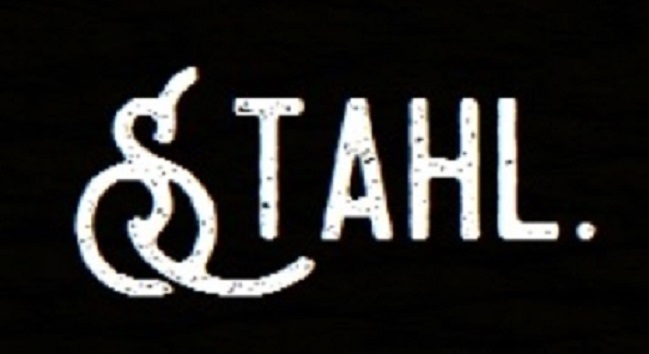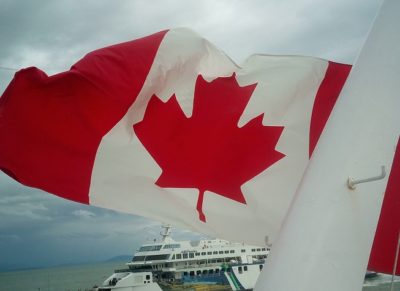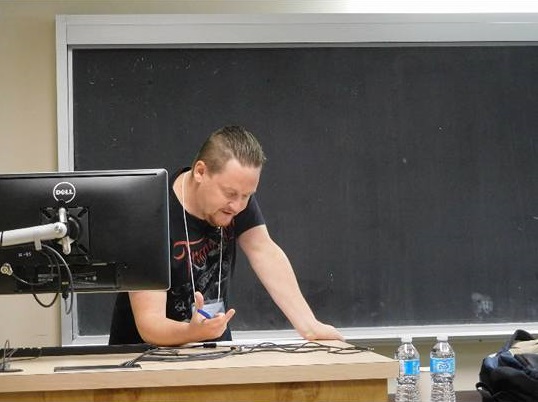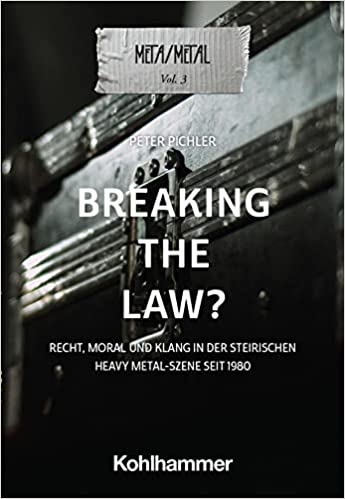From June 6th to June 16th 2017, I had a rather long travel: from Graz, Austria, to Victoria, British Columbia, Canada; then heading over to Norwich, Great Britain, and finally going back to Graz. In Victoria, at the University of Victoria (UVIC), I had the immense pleasure to be a part of the International Society for Metal Music Studies’ (ISMMS) 2017 conference, devoted to the topic of ‘Boundaries and Ties: the Place of Metal Music in Communities’. Over three exciting days, scholars, musicians and practitioners from all over the world, had intriguing talks on different facets and aspects of the liaison dangereuse between the local and the global in Metal culture.
Many talks focussed on Extreme Metal culture. My own talk took up the topic of one of my blogposts from 2016. I tried to conceptually come to the terms with the relationship between globalization and localization in Metal culture, taking the Metal on the Hill 2016 Extreme Metal festival as an empirical example. After the conference on Metal in Canada, I flew straight to London, passing on to Norwich where I had a talk at the annual conference of the Research Network on the History of the Idea of Europe, devoted to the subject of ‘Europe and the East: Self and Other in the History of the European Idea‘.
(Re-)Reflecting on this ten days, flying almost over 20.000 kilometers and having scientific talks on two very different topics, on two continents, in front of two very different academic communities, I do not want to analyze or present my talks themselves. Much more, to me, the interesting aspect of this (rather exhausting) trip is how it happened: a cultural historian from Graz, Austria, who normally teaches und publishes on European Union Cultural History, left his European (home-)continent to fly to another continent, Northern America, where he gave a talk on his local Metal scene.
After this ‘breaching’ of my used geographical, thus spatial and temporal, even topical boundaries in academic discourse, I went back to my home-continent (after the ‘Brexit’, I still consider Britain to be a part of Europe) to have a talk on my home-topic of EU studies. I feel, this is a very interesting combination of spatial and temporal structures of discourse in itself. What happened?
As a scholar of the rather ‘conservative’ and ‘established’ field of EU studies, I left behind my used academic territory of the ‘EU scholar’, also leaving the continent linked to this discourse (Europe). By flying to Canada, I spatially and temporally ‘stripped’ myself of my ‘EU scholar’- videntity and literally dressed up in the clothes of a ‘Metal Music Studies scholar’: when speaking in Victoria, I wore a Metal t-shirt of German band ‘Tranquillizer’.
In a nutshell, this on a first glance rather mundane process of breaching temporal, spatial and identitary boundaries can tell us something important about scientific discourses in general, and Metal Music Studies as a discourse of its own. (1) First, it shows very clearly that scientific discourses (like EU studies) are closely linked to spatial and temporal contexts. Most of all, EU studies as a discourse, takes place in Europe itself, and the identity of the ‘EU scholar’ is tied to his subject-continent.
(2) Second, Metal Music Studies as an emerging scientific discourse had the power to make me break my usual boundaries in academia. It made me go to North America, leaving Europe behind, and somehow even forced me to strip off my used scholar’s identity. This is a very symbolical hint at the often subtle transgressive power of Metal: it pushes forward to transgress existing boundaries, something Keith Kahn-Harris tried to capture in his concept of ‘Metal beyond Metal’.
This leads to a simple yet exciting thought and argument which needs much more further reflection and work on it: Metal Music Studies implements the globalizing and identity-shaping potential of Metal (‘Metal beyond Metal’) into academia. It is not only mere scientific reflection and writing but the construction of a new global research identity, having practices of its distinct own.
However, this means this new field is not very conscious of itself yet – it needs a lot more of theoretical self-reflection. For example, it would form an exciting project to edit a volume on different theoretical approaches in Metal Music Studies, shaping its subject from the various involved disciplines’ (musicology, cultural studies, sociology, anthropology, history, communication studies, business studies, gender studies) perspectives.
The author giving his talk at UVIC’s conference on ‘Boundaries and Ties: the Place of Metal Music in Communities, 11th June 2017, potograph by Anna Chilewska. ↩



